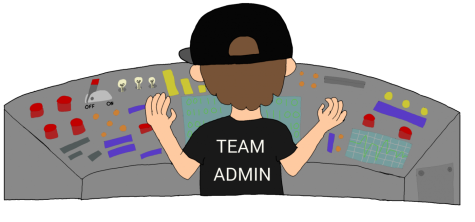
Public administrators, specifically principals, are seen as the top of the education chain. Many assume that administrators have this great amount of power and can achieve anything for students or parents, and these administrators just choose not to help. This, however, is untrue. The school system is a confusing, convoluted machine with innumerable moving parts.
It’s not uncommon for a parent to assume that an administrator has more power than they do. Ken Gilbert, principal of Memorial Middle School, puts it, “I think sometimes parents think that they can just call and we can just fix everything, and that’s just not true.”
Parents will often feel as though their child should be the most important thing to the school, because of how important their child is to them.While all children are important, the reality is that the school district is too busy to focus all attention on one child. Or, if the problem is that a child has a problem with another student, faculty can’t do anything. They can talk to the parents and the children, but they cannot force a child to change their behavior.
Alternatively, parents can assume that the school is out to get their child. Many times a parent will be reluctant to believe that their child is anything less than an angel, and they’ll stand by their child no matter how overwhelming evidence may be that their child is in the wrong. However, as Gilbert says, “[Administration has] no reason to want to discipline kids. We don’t, like, get enjoyment from it and so if we call, it’s for a reason. The teacher’s not out to get your child.”
Parents, however, aren’t the only ones who harbor an unfair bitterness to administrators. Students oftentimes think administrators are ignoring them or don’t care, when in fact, administrators are simply so busy that they may not know something or may not have time to get to every little thing.
Gilbert shares his perspective, saying “Something could be happening in the hallway and I could be standing next to it and maybe not ever realize that it happened, but the kid thinks I do, and then they’re mad.”
This kind of situation causes the student to think that their hardships are being ignored on purpose, when that’s clearly not the case.
All this, however, does in no way mean that principals harbor negative feelings towards all parents and students, in fact Gilbert even describes children acting out as them just “being children, and that’s fine.” But these administrators are under a constant stress, with little to no outlets.
Tracy Day, principal of Liberty Elementary school, tells me every staff member in our district gets “[…] counseling, there’s like five sessions available, so that’s something free to us.”
Simply put, being an administrator is hard work. And, as Day responded when asked if she ever felt underappreciated, “It’s less about being unappreciated and more about people just not understanding the stress we’re under.”
Administration doesn’t need pity, just some understanding. They don’t blame students for making them stressed, and they don’t feel angry with the students. They simply feel frustrated with the lack of solutions they often have.
Day explains to me, “I think that’s really what makes us frustrated, is we don’t know how to help.”
Public school administrators are considered the end all of the school district, but really they have limited time and ability. Asking them to take care of everything is simply unrealistic, and it’s quite uncommon that people understand that.
When it comes to things like policy and budget, the school board makes the decisions. Oftentimes, administration must follow the policy and budget which limits their capabilities. For example, it’s not uncommon for a student to blame the administration or the general district for cheap electronics or not paying to fix the old schools, but, in truth, it’s not really just up to actual school district employees. Their hands are tied.
Additionally, teachers may want administration to do something about a student and when they can’t carry out the action, the teachers will blame the administrator who made the call. However, they’re just following policy. For example, Special Education decisions are driven by state and federal law and school based teams. School administrators have very little control over these things.
All in all, not everything is the administration’s fault. There are things they just can’t complete for students, parents, or teachers. It’s not just because they don’t care or aren’t trying. There is a system for everything and there are limitations that cannot be changed to fit everyone’s needs.
